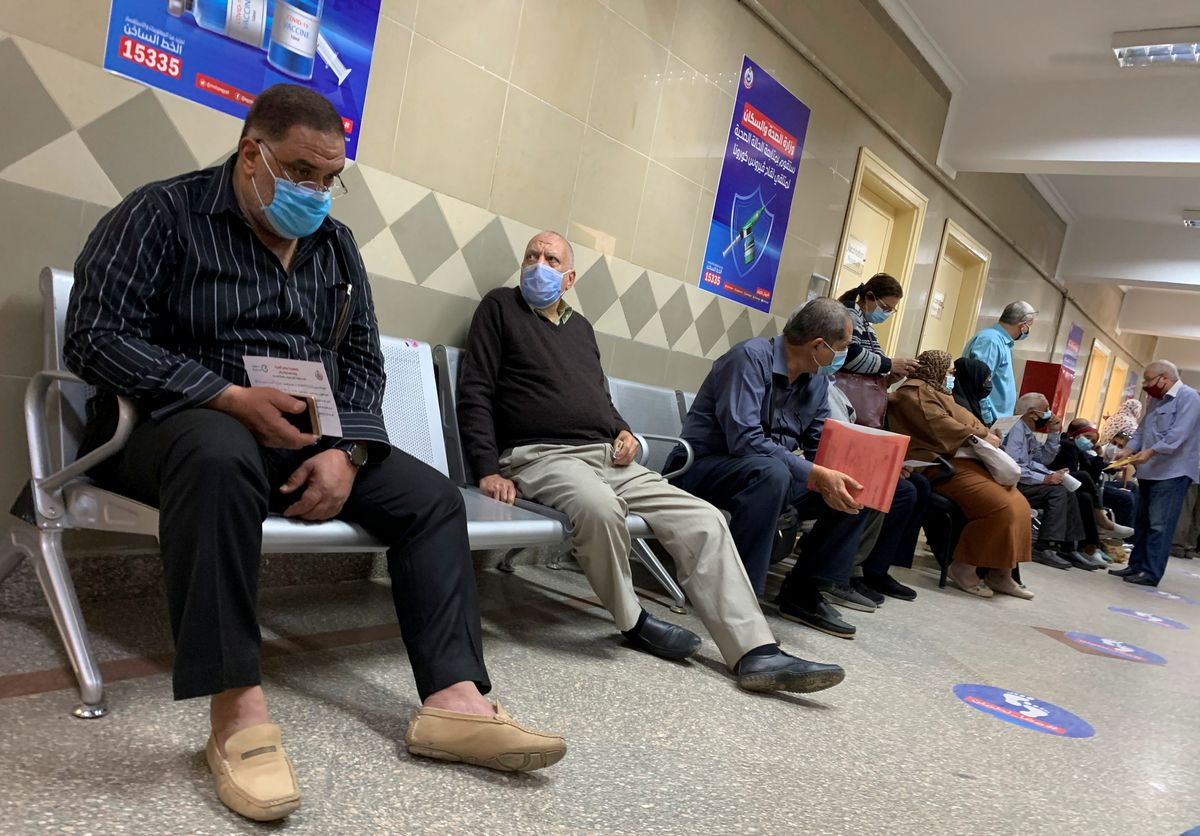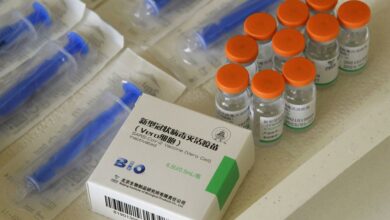
Immune and Allergy consultant at VACSERA Amjad al-Haddad said on Sunday that Delta variant of the coronavirus is spreading in most Arab countries, especially Libya, Tunisia and Iraq.
In statements to the “Al-Hadath Al-Youm” program, Haddad said “the rapid spread of this variant raises a lot of fear and anxiety,” and he called for tightened precautionary measures to prevent the variant’s entry to Egypt.
He warned that Egyptians are behaving recklessly, thinking that the pandemic is over, adding that the same pattern happened in Tunisia, whose healthcare system has now collapsed.
Haddad called for all to adhere to precautionary measures until the Ministry of Health completes its vaccination drive. This includes wearing face masks and maintaining a safe distance throughout the approaching Eid al-Adha holiday and the rest of summer vacation.
He continued, “The Delta variant is very close, and it is expected to arrive in September, and we must learn from the painful Tunisian experience, which is witnessing a frightening spread of the virus.”
Haddad explained that the Delta variant can lead to a decrease in antibodies that are formed by gettinga dose of the vaccine, which may create the need for additional booster doses.
“Vaccinations significantly reduce the death rate from the virus, and therefore giving a booster dose to those who have already received two doses will enhance their immunity and reduce complications from infection,” he said.
Meanwhile, the Egypt-born clinical research expert based in Washington DC, Ashraf el-Fiky, said that genetic analysis of the Delta strain has indicated a change in the coronavirus, which makes this strain more able to dock with the cells of the respiratory system of humans and therefore easier to spread.
During a phone call on Sunday with “Hadith al-Qahira” (Cairo Talk)’s hosts Khairy Ramadan and Karima Awad, Fiky noted that many countries have experienced major problems and an increase in infections because of the variant.
He added, “It is necessary to guard against the spread of the strain in Egypt,” stressing that the published research has stated that the Pfizer and AstraZeneca vaccines have less efficiency in confronting the new strain.
Fiky stressed that vaccination with COVID-19 vaccine at the community level narrows and reduces the risk of infection with the new strain, but does not immunize against infection.
Edited translation from Al-Masry Al-Youm
IMAGE: Elderly people, wearing protective face masks amid the coronavirus disease (COVID-19) outbreak, wait to receive a shot of a COVID-19 vaccine at a health centre, in Qatameya, Cairo, Egypt March 22, 2021.




